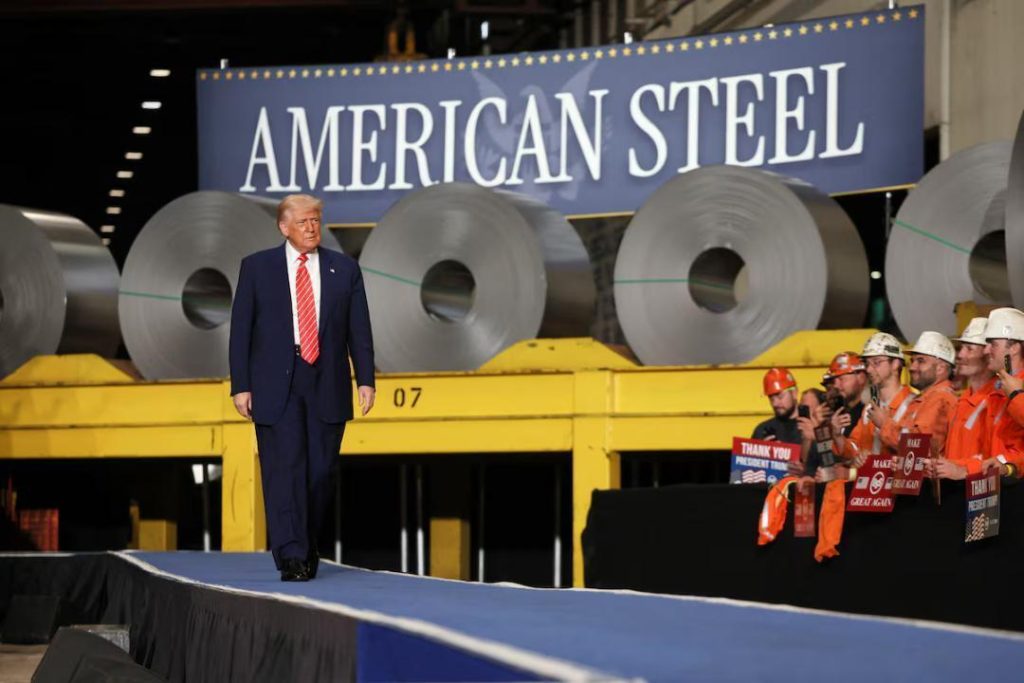
EU Strongly Regrets US Steel Tariff Hike from 25% to 50%
The European Commission has expressed its strong regret over the recent announcement by the United States to increase its tariffs on steel imports from 25% to 50%. The move, which took effect on May 31, 2025, has been met with opposition from the EU, which has warned that it could lead to a surge in costs for consumers and businesses.
In a statement, the European Commission said, “We strongly regret the announced increase of US tariffs on steel imports from 25% to 50%. This decision will harm the interests of European companies and consumers, and will likely lead to a surge in costs for our industries and citizens.” The commission also emphasized that the move would undermine the efforts of the EU and the US to promote close and cooperative relations in the trade and economic fields.
The EU has been a vocal critic of the US steel tariffs, which were first introduced in 2018. The EU has repeatedly called for the tariffs to be lifted, arguing that they are unfair and protectionist. The EU has also imposed its own retaliatory tariffs on US goods, including steel and aluminum products, in an effort to pressure the US to reconsider its stance.
The US decision to increase its steel tariffs has been met with support from some US lawmakers and industry groups, who argue that the move is necessary to protect the US steel industry from what they see as unfair foreign competition. However, many economists and trade experts have warned that the tariffs will have negative consequences for the US economy, including higher prices for consumers and reduced economic growth.
The EU has been working closely with the US to find a solution to the steel tariff dispute. In recent months, the two sides have engaged in a series of talks aimed at resolving the issue. However, despite these efforts, the two sides have been unable to reach a mutually acceptable agreement.
The EU has said that it will continue to engage with the US to find a solution to the steel tariff dispute. However, it has also warned that if no mutually acceptable agreement is reached, it will be forced to take additional measures to protect its own industries and citizens. The EU has threatened to impose additional tariffs on US goods, including agricultural products, if the US does not lift its steel tariffs.
The US decision to increase its steel tariffs has also been met with criticism from other countries around the world. The World Trade Organization (WTO) has warned that the tariffs will have negative consequences for the global economy, and has called on the US to reconsider its stance.
The steel tariff dispute between the EU and the US is just the latest in a series of trade disputes that have emerged in recent years. The Trump administration’s decision to impose tariffs on steel and aluminum imports in 2018 sparked a global trade war, with many countries imposing retaliatory tariffs on US goods. The dispute has had a significant impact on global trade, and has led to a decline in economic growth and a surge in protectionism.
In conclusion, the EU’s strong regret over the US decision to increase its steel tariffs from 25% to 50% is a clear indication of the negative impact that these tariffs will have on the global economy. The EU has warned that the tariffs will raise costs for consumers and businesses, and will undermine the efforts of the EU and the US to promote close and cooperative relations in the trade and economic fields. The EU has also threatened to take additional measures to protect its own industries and citizens if the US does not lift its steel tariffs. The steel tariff dispute between the EU and the US is just the latest in a series of trade disputes that have emerged in recent years, and it highlights the need for countries to work together to promote free and fair trade.






